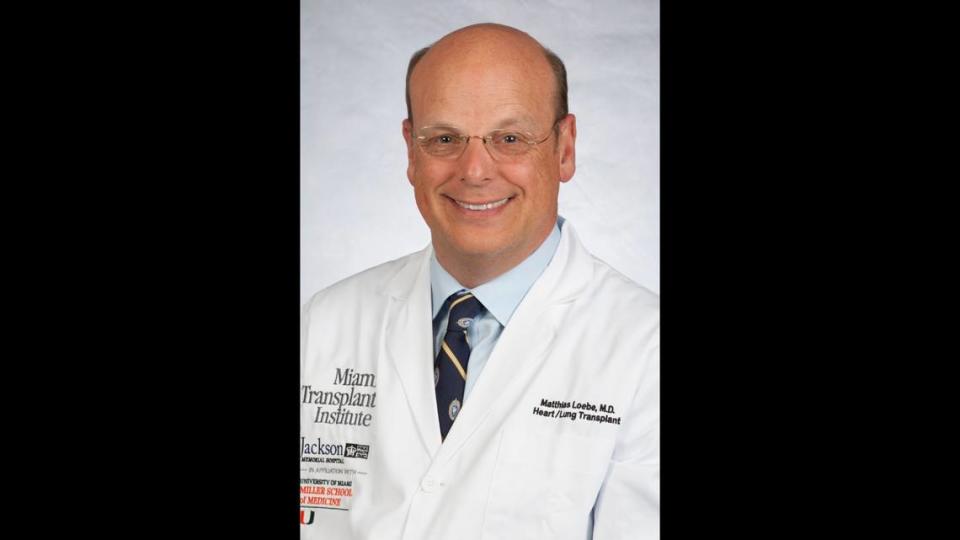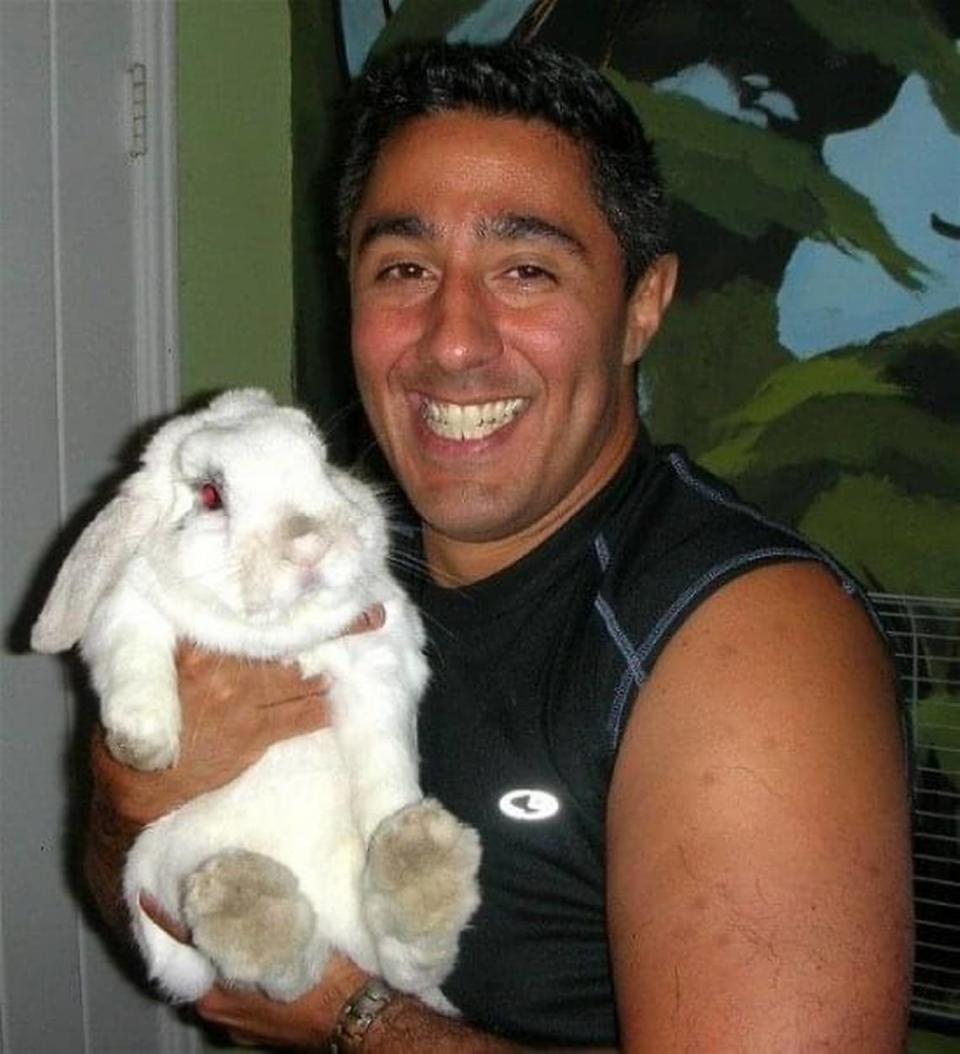Here’s what led to the investigation at Jackson’s Miami Transplant Institute, and what’s next
The Miami Transplant Institute at Jackson Memorial Hospital is in the spotlight. Here’s why:
▪ Its adult heart transplant program remains shut down while the nonprofit organization that oversees the country’s organ network investigates at least five patients’ deaths at the institute since 2021. The institute abruptly suspended the program in March.
▪ The Institute’s former chief of heart transplant and ventricular assist devices is no longer treating patients.
▪ Federal and state agencies are looking into the hospital’s heart-device implant program, known as LVAD, or Left Ventricular Assist Device, which is a mechanical pump implanted in a person’s chest when their heart can no longer sufficiently pump blood throughout the body.
University of Miami doctors staff the Miami Transplant Institute as part of a joint operating agreement between UM’s Miller School of Medicine and Jackson Health System, the Miami-Dade County public health network. The Institute, founded in 1970 and one of the oldest and largest transplant centers in the country, is based at Jackson Memorial Hospital’s main campus near downtown Miami. In addition to the heart, transplants are done there for kidneys, lungs, the liver, the pancreas and intestines.
Here’s a timeline of recent developments:
▪ Oct. 13, 2022 — Dr. Rodrigo Vianna, director of the Miami Transplant Institute, notifies Dr. Matthias Loebe in a letter that he will “no longer serve in the role of Chief of Heart Transplant and Ventricular Assist Devices,” effective Feb. 13, 2023. “As discussed, we believe it is in the best interest of the Miami Transplant Institute to search for a new leader for these programs,” the letter states.
Also in the letter: Loebe will lose $150,000 of his salary — his “administrative supplement” — as of Feb. 28, 2023.
Loebe, 64, joined the Miami Transplant Institute in 2015, recruited from the Houston Methodist DeBakey Heart & Vascular Center in Texas. He will remain in his job until his successor is hired, Jackson officials say.

▪ December 2022: A complaint about the heart pump program at the Miami Transplant Institute at Jackson is submitted through EthicsPoint, a portal for University of Miami employees to lodge anonymous complaints.
▪ February 2023: A second complaint about the heart pump program is filed through EthicsPoint.
▪ Mid-March 2023: An internal Jackson complaint is sent to the Centers for Medicare & Medicaid Services, part of the U.S. Department of Health and Human Services, which regulates hospitals in the United States. The Centers for Medicare & Medicaid Services is the nation’s single-largest hospital payer of medical claims.
The report, which the Herald has reviewed, details patients’ deaths within one year of having a left ventricular assist device implanted in their chest at Jackson. The complaint alleges the deaths were “preventable” and were caused by various factors, including poor heart pump candidate selection for risky procedures and poor surgical management. Jackson said it investigated the claims “and determined them to be completely unfounded, after conducting exhaustive reviews of patients’ medical records.”
▪ March 20, 2023: Luke Preczewski, vice president of the Miami Transplant Institute, announces the voluntary suspension of the adult heart transplant program in a staff Zoom meeting, noting this news will not be shared with the public. The program will remain suspended while it undergoes a review by the United Network for Organ Sharing, the nonprofit that operates the country’s organ transplant system for the federal government.
▪ March 21, 2023: The Herald learns of the suspension independently and publishes a story on its website, with the headline, “Jackson/UM’s renowned adult heart transplant program is abruptly suspended, pending review.”
▪ March 28, 2023: Herald editors and reporters meet with doctors and administrators at the Miami Transplant Institute at Jackson. Disclosed in the meeting: The adult heart transplant program’s suspension is the result of pressure from organ network; the hospital has received anonymous internal and external complaints about the program, which is not performing as well as its other organ transplant programs; major personnel changes are on the horizon, doctors and officials say.
READ MORE: Complaints, pressure from organ clearinghouse led Jackson to halt adult heart transplants
▪ The week of April 3: The organ sharing network sends a peer-review panel made up of physicians from other transplant centers across the country, along with federal regulators and network administrators, to investigate Jackson’s adult heart transplant program. One of the deaths being examined: Frank Ricigliano, the 56-year-old hairdresser who underwent heart transplant surgery at the Miami Transplant Institute in the spring of 2021 and died less than three months later, on July 4, 2021.

▪ April: UM responds to the EthicsPoint complaints, posting that its investigation has been completed and noting “appropriate action has been taken.”
▪ The week of April 10: Officials from the Centers for Medicare & Medicaid Services and the Florida Agency for Health Care Administration, which regulates hospitals and other healthcare facilities in the state, make unannounced visits to the Miami Transplant Institute. They zero in on heart transplants, as well as the heart pump implant program, Jackson confirms.
▪ The week of April 17: A Jackson spokesperson confirms that Loebe, the longtime chief of Jackson’s heart transplant and heart pump programs, is no longer treating patients, although he is still on staff.
What’s next?
The organ network is expected to issue an “action plan” by the end of April that will explain what the Miami Transplant Institute’s adult heart transplant program needs to resolve to reopen.

